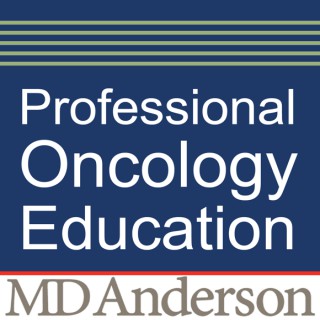
Tobacco Cessation
Follow Tobacco CessationSmoking is responsible for 30% of all cancer deaths, and has been linked to more than 10 different types of cancer. This course provides an overview of the nature of tobacco dependence and the need for treatment, the biology of nicotine dependence, the effective behavioral treatments for nicotine de…
The University of Texas MD Anderson Cancer Center
- Dec 4, 2012 LATEST EPISODE
- infrequent NEW EPISODES
- 47m AVG DURATION
- 4 EPISODES
More podcasts from The University of Texas MD Anderson Cancer Center
Latest episodes from Tobacco Cessation

Smoking is just as addictive as cocaine, heroin, and alcohol. Dr. Maher Karam-Hage, an Associate Professor, Addiction Psychiatrist in the Department of Behavioral Science and Psychiatry, and Associate Medical Director of the Tobacco Treatment Program at The University of Texas MD Anderson Cancer Center, says, “It takes less than 11 seconds for nicotine to reach the brain.” In this lecture, Dr. Karam-Hage identifies the magnitude of nicotine dependence and the need for treatment, and explains the biology of nicotine dependence.

Smoking is just as addictive as cocaine, heroin, and alcohol. Dr. Maher Karam-Hage, an Associate Professor, Addiction Psychiatrist in the Department of Behavioral Science and Psychiatry, and Associate Medical Director of the Tobacco Treatment Program at The University of Texas MD Anderson Cancer Center, says, “It takes less than 11 seconds for nicotine to reach the brain.” In this lecture, Dr. Karam-Hage identifies the magnitude of nicotine dependence and the need for treatment, and explains the biology of nicotine dependence.

Smoking is the number one preventable cause of death among all diseases. Mr. Frank Vitale, the National Director for the Pharmacy Partnership for Tobacco Cessation at the University of Pittsburgh School of Pharmacy says, “If you think patients don’t want to hear about quitting, you’re wrong.” Studies show minimal interventions by clinicians as short as 3 minutes, increase overall tobacco survival rates. In his compelling lecture, Mr. Vitale examines the epidemiology of tobacco use, identifies the barriers to treating tobacco dependence, discusses various effective clinical interventions, and explains different methods for quitting.

Smoking is the number one preventable cause of death among all diseases. Mr. Frank Vitale, the National Director for the Pharmacy Partnership for Tobacco Cessation at the University of Pittsburgh School of Pharmacy says, “If you think patients don’t want to hear about quitting, you’re wrong.” Studies show minimal interventions by clinicians as short as 3 minutes, increase overall tobacco survival rates. In his compelling lecture, Mr. Vitale examines the epidemiology of tobacco use, identifies the barriers to treating tobacco dependence, discusses various effective clinical interventions, and explains different methods for quitting.

















